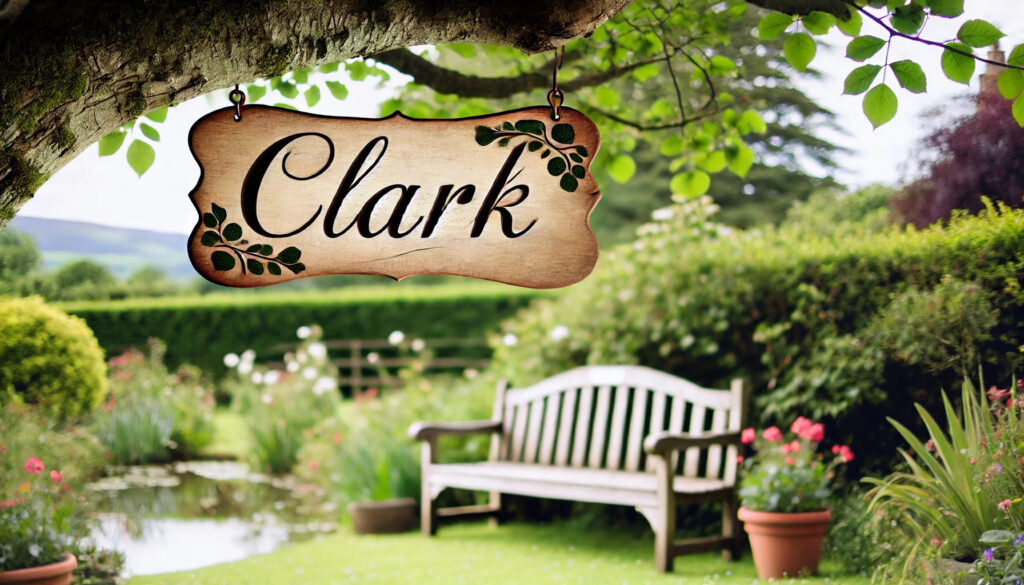There’s a certain allure and intrigue when it comes to surnames. They often offer a window into our ancestral past, revealing tales of ancient professions, familial roles, or places of origin. Among such surnames, “Clark” holds a rich history. Let’s delve into the captivating narrative of the Clark surname.

Origin and Meaning
At the very root, the surname “Clark” (sometimes spelled “Clerk” in older English records) originates from the Latin “clericus”, meaning “scribe” or “secretary”. The term was later adopted into Old English as “clerc” or “clerk”, signifying someone who was literate, a rarity in medieval times. This nomenclature was typically reserved for those who served as clerks in both religious and secular roles.
From Religious Roots to Wider Horizons
1. The Church’s Influence: During the Middle Ages, the church was a dominant institution. Its vast resources and influence meant there was a significant need for literate individuals who could maintain records, transcribe religious texts, and perform administrative duties. These clerks, often minor religious officials, became indispensable in church-run affairs. They were neither fully ordained priests nor laypeople, occupying a unique space in the hierarchy of the church.
2. The Secular Shift: As towns and trade grew, the need for clerks extended beyond religious institutions. Boroughs, trade guilds, and merchant ventures required educated men to keep accounts, write letters, and document transactions. The role of a clerk evolved, and they became the bureaucrats and administrators, essential cogs in the machinery of medieval commerce and governance.
Distribution and Popularity
1. A British Beginning: The Clark surname is historically concentrated in the British Isles. Early records in England and Scotland often mention individuals with this surname, reflecting the profession’s importance. For instance, the Hundred Rolls of 1273 listed a “Roger le Clerk” from County Buckinghamshire.
2. Crossing the Atlantic: The name travelled to North America, primarily with British settlers. It quickly proliferated in the New World, where literacy and administrative skills were in high demand. Today, “Clark” ranks among the top surnames in the United States, a testament to the many bearers of the name who have left their mark on American history and society.
Notable Clarks
Many individuals bearing the Clark surname have risen to prominence in various fields:
- William Clark: One-half of the famed Lewis and Clark expedition, he was instrumental in exploring and mapping the newly acquired western territories of the United States in the early 19th century.
- Jim Clark: A Scottish Formula One racing driver from the 1960s, he was known for his exceptional talent and remains a legend in the world of motorsport.
- Kenneth Clark: An eminent British art historian, Clark’s television series “Civilisation” introduced millions to the wonders of Western art and culture.
Clark in Modern Culture
Beyond history, the Clark surname has made its presence felt in contemporary culture. It’s not uncommon to encounter fictional characters named Clark in literature, film, and television, the most iconic being Clark Kent, the alter ego of Superman. His name, rooted in a very earthbound profession, contrasts wonderfully with his extraterrestrial origins.
Conclusion
The story of the surname “Clark” is a journey through time, from ancient Latin roots to its contemporary significance. Whether held by explorers, racers, historians, or fictional superheroes, the Clark name carries with it a rich tapestry of stories and histories. Like many surnames, it serves as a lasting testament to the roles our ancestors played and the ever-evolving nature of society and identity.